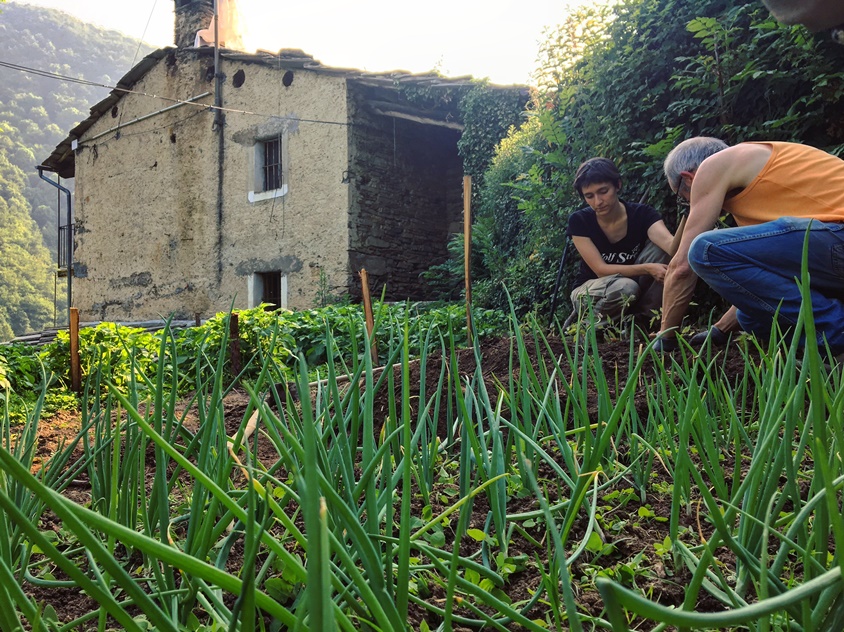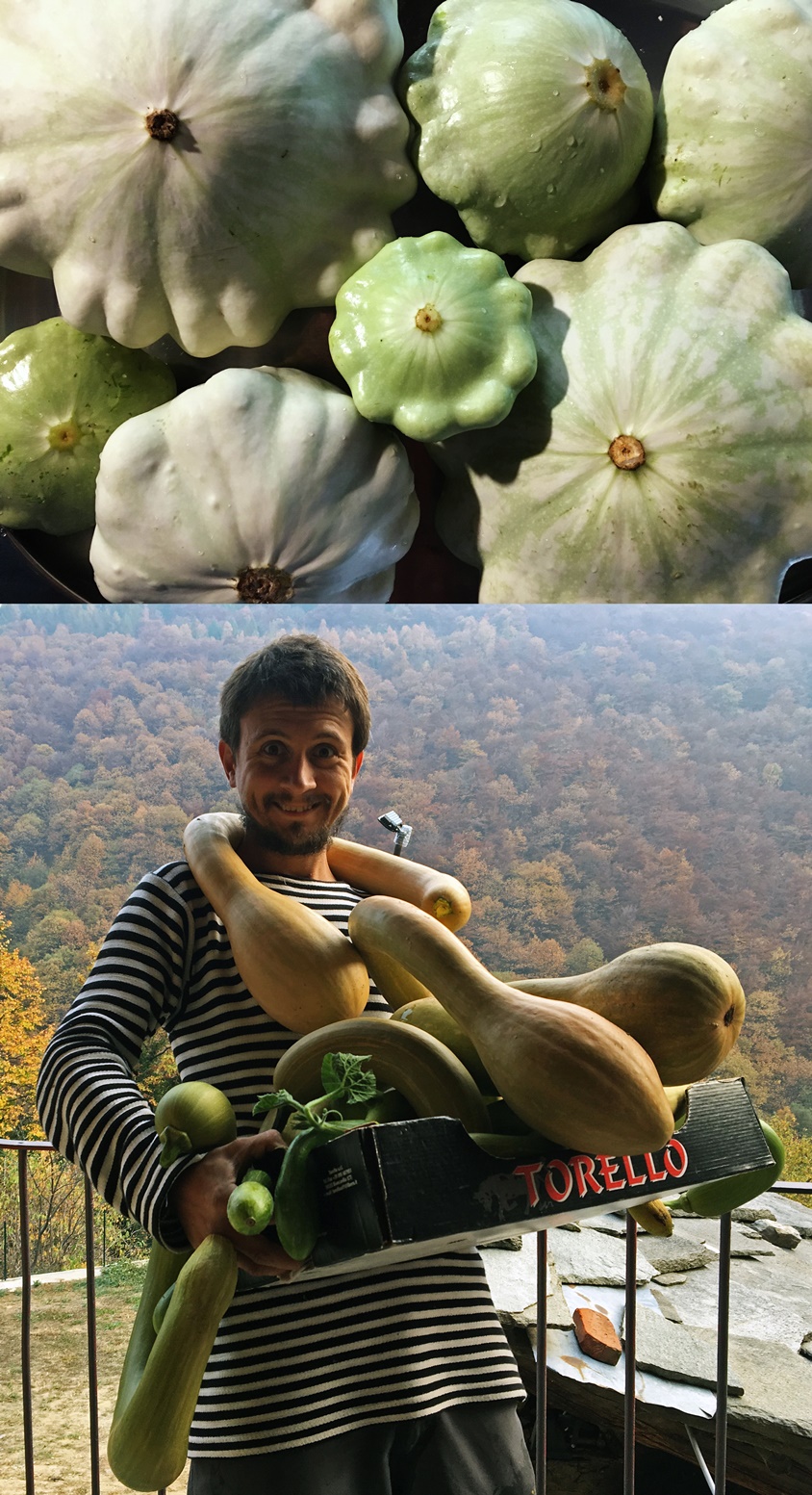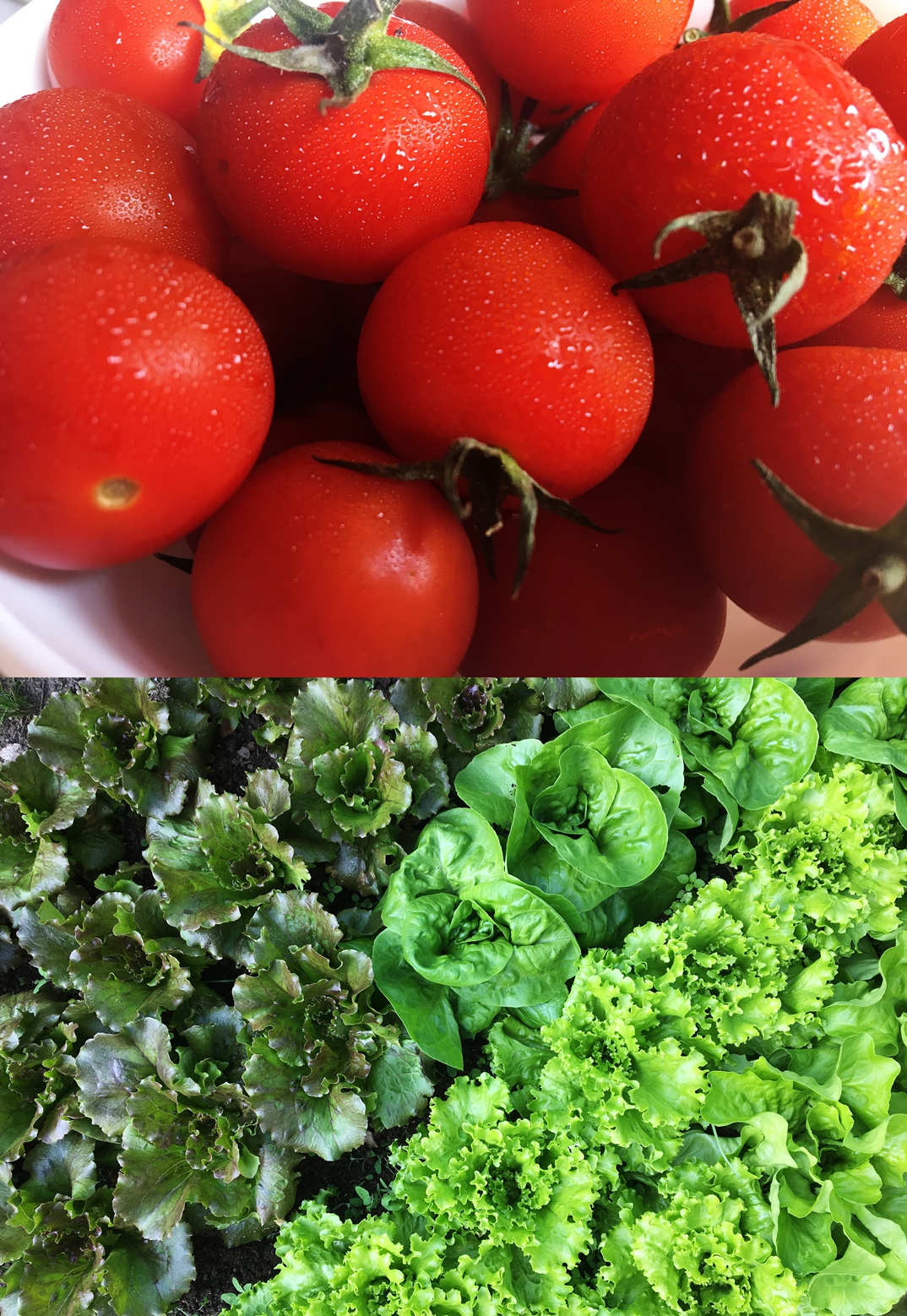
The garden is another important part of the project, that makes us more and more self-sufficient and aware of the nature. Here we try to practice the methods of natural farming.
The principles of natural farming, involving the minimization of human intervention in the process of growing crops, was developed by the Japanese farmer and philosopher Masanobu Fukuoka.
The four principles of subsistence farming are:

- welcome
- program
- 2023
- Gianni Denitto. Live saxophone and electronic
- Monica Perosino. La Neve di Mariupol. Book presentation
- East. Photographs by Alessandro Treggiari
- Katya Kabalina. Sensible objects
- Balovin and Beccato. In Kind Exchange
- Zoya Pilipenko. Puzzles. Open studio
- Lev Nikitin. Senso di Fame. Interactive performance
- Witness Trauma. Film screening and meeting with director Taya Zubova
- Transmorphing. Balovin&Beccato
- Religious/Political. Group exhibition of artists in residency
- 2022
- Ceramographics . Dragoljub David Stankovikj
- Conversation on the war in Ukraine and testimonies of resistance
- Kharkiv 2022. Kirill Gonchar. Photo chronicle of destroyed city
- Meeting with eyewitnesses of the war in Ukraine
- Matteo Tambussi. Concert supporting Ukraine
- Pisa: Ukraine and Russia. Art for Freedom.
- Open Studios. Italian, Ukrainian and Russian artists
- Lorenzo Gnata: Sulla Rotta
- Cristina Arnone: Conversations with trees, animals and human hart
- Gianni Pavan: Sounds and Silence of the Nature
- Daniil Shumikhin. Twenty Twenty Two
- Blu Polokkio
- 2021
- 2020
- Tarik Hanif. Florilegium
- Malacosa Teatro. Atypical Sung Variations.
- Jolin Lab. Stellaria
- Alessandro Sciaraffa, Daniele Galliano. «Stars and Flowers»
- Weaverbirds Collective. Aurora
- Vanja Vukovic. Exclusive Clouds
- Open studio with young artists: Laura Tolen, Jacqueline Hoefnagels, Molly Johnson, Nell Mitchell.
- Alexey Mironov. Bon Voyage
- La Pushkin
- 2019
- Anastasia Sukhareva-Morozova. Utitled
- Sergei Prokofiev. Place
- Lev Nikitin. Scotoma
- Matteo Tambussi. Live
- Beppe Giampà. Live
- Adrian Geller. I was pretty lucky
- Valdo Morel. Flash
- 20 Strings. Live
- Da ladno. Russian Folk
- Cynthia Fusillo. I Have All I Need
- Marta Zapparoli: Acoustic Sketch Portraits
- Erik Schou. Non Ci Sono Lucciole Senza Buio
- Ilaria Allegri. Live
- RednakS
- Stefano Fiori & Giuliano De Marco. Live Blues
- Animated movies
- Simon Lambrey. Being humans.
- Maximiliano Siñani. Apaccieta n.2
- Marina Skepner. My Shallow Roots
- 2018
- Sonic Picnic
- Die Dschunkel
- Iris Jans. Veranderen. Verschuiven
- The Trivettes Bluegrass Night
- Einar Breistrand Gerrard and Vovka Kozhekin
- Domestico — Selvatico
- Mitya Kharshak: Scaffolded City
- La Città delle Vedove di ClaudIo Celentano
- Jam with Dingo
- Con/Certo Senza Biglietto
- Harry Jones–Martin. Moving Semiotics — Language in The DigitaL Age
- Natalya Zaloznaya. The Model of a Failed Escape
- Bread and Jam
- Julia Belova: Mellow Yellow Swallows Bellow
- Makepop!
- The Cartoons You’ve Never Seen: Ivan Maximov, Leonid Shmellkhov and the others
- Camminare con Nicol Guerra
- Dragoljub David Stankovikj: Molitva
- Da Ladno!
- Vea
- Fabrizio Urbisaglia & Ivan Canello
- 2017
- Dragoljub David Stankovikj
- ManiaXXX
- The Crickets Under the Water
- The Cartoons You've Never Seen
- Import/Export
- Forno Filosofico
- Gingi Statman: Mattoni Matti
- Introduction to Meditation with Gian Luigi Cargnel
- Kombu Project
- Beppe Giampà
- Jam with Josephina Schiller
- Orphic Wind Van
- Con/Certo Senza Biglietto
- Ciento Lindo Party
- In Kind Exchange
- Olga Niconova
- Russian Authors Animation
- 2023
- stone oven house
- art residency
- neighbourhood
- donation
- contacts
- FAQ
- RU
- IT

The first is the refusal of plowing or turning the soil. Instead, the earth is allowed to cultivated itself through the penetrating roots of plants, the activity of microorganisms, small animals and earthworms.
The second is the rejection of chemical fertilizers or prepared compost. If left to maintain its own fertility, the earth will maintain its own fertility in accordance with the orderly cycle of plant and animal life present on the land.
The third is to not do weeding, neither manually nor with herbicides. Weeds play a role in creating fertile soil and a balanced biological community. The basic principle is that weeds must be controlled, but not eliminated.
The fourth principle is: no dependence on chemical pesticides. Although chemical solutions can be effective against pests and plant diseases in the short run, in the long run they are hazardous. Wholly aside from the pollution they leave behind, they permit weak, chemical-dependent plants to survive. Left to itself, nature prefers hardier stock.